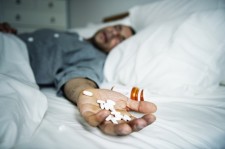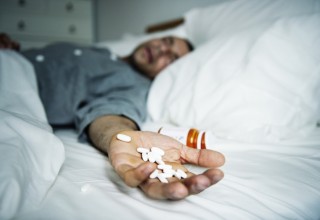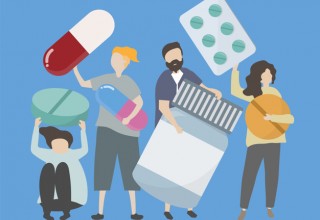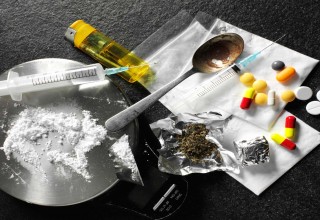Pacific Pain Care, Corona Physician Dr. Sanjoy Banerjee Shares How Medication Assisted Treatment (MAT) Can Help the Victims of Opioid Crisis

CORONA, Calif., November 17, 2018 (Newswire.com) - Pacific Pain Care, Corona Physician Dr. Sanjoy Banerjee also highlighted what physical and mental withdrawal symptoms one can expect when he or she stops using any addictive substance like opioids suddenly. Dr. Banerjee who has helped scores of people to get rid of opioid medication via MAT methodology also shed light on the role the right medication can play to help an addict. Corona Physician Dr. Sanjoy Banerjee also encouraged addicts to reach out for help rather than struggling alone every day. Dr. Banerjee also insisted that MAT not only works to help people struggling with opioid addiction but it can also prove to be helpful for people who are hooked on alcohol or tobacco.
Addiction to opioids has become an epidemic not only in the US but several other parts of the world as well. Everyone from youngsters seeking some fun in life to seniors dependent on pain care medications to live pain-free life are getting addicted to opioids often without their knowledge. Corona Physician Dr. Sanjoy Banerjee recently opened up about how Medication Assisted Treatment (MAT) can help the victims of the opioid crisis. Dr. Banerjee and his team at Pacific Pain Care Consultants have helped scores of patients to get rid of this addiction and live a normal life once again.
Research that was done on MAT, i.e., medication assisted treatment has discovered that a combination of medication and therapy can play a key role in helping a victim of opioid crisis to stay away from the addictive drugs."
Dr. Sanjoy Banerjee., Medical Consultant
Starting by explaining how medically assisted treatment works, Corona Physician Dr. Sanjoy Banerjee said “Research that was done on MAT, i.e., medication-assisted treatment has discovered that a combination of medication and therapy can play a key role in helping a victim of opioid crisis to stay away from the addictive drugs. In many cases, it can also help in sustaining recovery. These treatments can reduce cravings, ease withdrawal symptoms and even block your brain’s ability to experience the effect of a substance. Often, MAT can help increase a person’s odds for long-term recovery as well.”
Sharing that early adoption is the key to the success of MAT, Corona Physician Dr. Sanjoy Banerjee said “It is a known fact that the earlier you seek help for your addiction, the better would be your chances of recovery. It is also a fact that MAT works best when you are in the early stages of recovery, and you are experiencing withdrawal and detoxification.”
Explaining what withdrawal is, Corona Physician Dr. Sanjoy Banerjee said “When you stop making use of any addictive substance, be it dangerous opioids or a simple addiction like coffee, your body and mind will go through the withdrawal stage. In this stage, your body and mind need to adjust to the fact that it will no longer receive the substance you are addicted to. The physical symptoms of withdrawal can be as simple as feeling mild nausea to as grave as feeling extreme pain. Some other common symptoms include vomiting and chills. On the other hand, an addict also often suffers from mental symptoms such as depression, anxiety, insomnia, and irritability. In many cases, an addict can get over the physical symptoms in a few days or weeks. Unfortunately, the mental symptoms last longer and may trouble an addict for several months.”
Highlighting the role of right medication, Corona Physician Dr. Sanjoy Banerjee said, “The best way to reduce the effects of the withdrawal symptoms on body and mind is to take some medications. These medications are approved by the FDA and are way safer than the opioids a person is addicted to. These medications not only help with reducing the symptoms, but they can also ensure that you feel less craving for the drugs you are addicted to. People who are wondering whether medications are a right option when trying to save a person from opioid addiction should know that a 2014 study conducted by SAMHSA – Substance Abuse and Mental Health Services Administration had estimated that about 80 percent detoxifications done at treatment facilities included some use of medication.”
Offering advice to the opioid addicts, Corona Physician Dr. Sanjoy Banerjee said, “If you know or suspect that you are getting addicted to opioids, the best thing you can do for yourself is to reach out. You don’t need to struggle alone every day. Instead, you need to ask for help and receive unconditional support. You should know that opioid addiction is a disease and to cure it, you need help. Don’t be embarrassed or shy about your condition and talk to an expert or someone you can trust would help you. When you take the first step and reach out, you will take the first step towards living an addiction-free life.”
Providing details on how medications can help, Corona Physician Dr. Sanjoy Banerjee said “After the detoxification process has begun, some medications are used to ensure that a person avoids relapse. The medications help a person to re-establish normal brain function and decrease his or her cravings. The use of these medications will not generate quick results. You should know that these medications would get rid of the drugs slowly and will increase the odds of a patient continuing to be on the path of recovery. Medications can usually help with any type of addiction, be it an addiction to opioids, alcohol or even tobacco. Medications can also play a crucial role in helping a patient who has overdosed on opioids either by accident or design. As there were over 28,000 cases of opioid overdose in 2014 in America alone, it’s high time that people struggling with the opioid crisis place their reliance on MAT.”
Source: Pacific Pain Care



